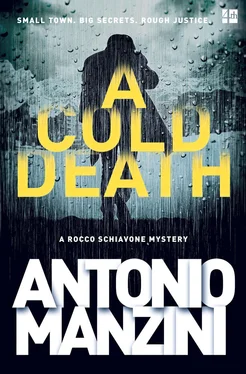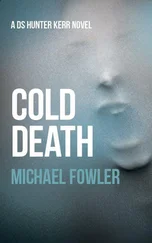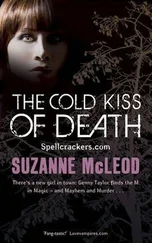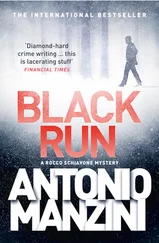On the well next to the fridge was a flyer from the city government. It was a map listing trash days. Rocco took a look at it. They picked up paper recycling on that street on Thursdays. The day before. That’s why the bin was half-empty.
The deputy police chief shifted his attention to the cell phone that he himself had placed on the marble countertop. That was another question mark. Who did it belong to? Was it the victim’s? And why had it been shattered? Where was the SIM card?
The bedroom looked like it had been gone over with a fine-toothed comb. The burglars had concentrated here, working carefully. While the kitchen looked like the aftermath of an earthquake, in the bedroom you could see the careful hand of someone conducting a surgical investigation. Only the sheets had been tossed roughly aside and, to the attentive eye, it was clear that the mattress had been shoved a couple of inches over from the box spring beneath. The front doors of the armoire swung open, but the dresser and side tables were undisturbed. Under the window, half-hidden behind the floor-length curtains, was a dark blue velvet box. Rocco picked it up. It was empty. He left it on the dresser, next to another framed photograph of the couple. In this one, they were sitting at a table and embracing. Rocco stared at the woman’s face. And he silently promised her that he’d catch the son of a bitch. She thanked him, responding with a halfhearted smile.
The deputy police chief had decided to head home on foot, in defiance of the wind that had started to buffet the powdery snow off the roofs and tree branches, kicking it up in small whirlwinds off the blacktop of the streets. He strode briskly, his hands buried in the pockets of his light overcoat, which did little to keep him warm in that chilly weather. He looked up, but heavy dark clouds had covered both mountains and sky. Looking past the apartment buildings, all he could see were fields covered with snow or dark with mud. The last thing he wanted was to head straight back to police headquarters: he didn’t want to talk to the chief of police, much less explain to the judge exactly what they’d found, partly because he didn’t actually know. People on the sidewalk went past him without a glance, absorbed in their own affairs. He was the only one out without a hat. The wind’s icy fingers massaged his scalp. He was bound to pay for this walk with a sinus infection and a backache. The air was a blend of wood smoke from the chimneys and carbon monoxide from the tailpipes. He walked briskly into the street at crosswalks, defying death. In Rome, someone would have certainly run him over, crushing him to jelly on the asphalt. But this was Aosta, and the cars screeched to an unprotesting halt. He thought about what awaited him, what lay ahead of him. Aside from the Fiat 500 that stood patiently waiting for him to cross, nothing but work. And life in a city that was alien and distant. There was nothing here for him, and there never would be, even if he stayed for the next ten years. He’d never be able to bring himself to chat with old men in the bars about the high points of the local wines or the upcoming football transfers. And for that matter his hesitant, wavering efforts to construct an affair with Nora looked thinner than a piece of onionskin typing paper. He missed his friends. He knew that at a time like this they’d rally to his support, and help him get over that intolerable pain in the ass. He thought of Seba, who had at least come up to see him. Furio, Brizio. Where were they now? Were they still out on the street, or had his colleagues in the Rome police sent them for an extended stay at the Hotel Roma, as the Regina Coeli prison was called? He’d have given a frostbitten finger of his hand for an ordinary Trastevere pizza, a good old cigarette at night, high atop the Janiculum Hill, or a game of poker at Stampella. Suddenly he found himself at the Porta Pretoria. At least the wind couldn’t gust so freely through those ancient Roman gates. How had he wound up there? It was on the far side of town from police headquarters. Now he’d have to retrace his steps to Piazza Chanoux and continue straight from there. He decided that he’d stop in the bar on the piazza. He slowed his pace, now that he had a destination. Then he heard Beethoven’s “Ode to Joy” issuing from his overcoat pocket. It was the ringtone he’d put on his cell phone for personal calls.
“Who is it?”
“Darling, it’s me, Nora. Bad time?”
“Yes.”
“So am I bothering you?”
“Why do you insist on asking questions that practically demand a rude answer?” he asked.
“What’s going on? Something wrong?”
“You want to know? Then I’ll tell you. I’ve got a murder on my fucking hands. Satisfied?”
Nora paused for a moment. “Why on earth would you take it out on me?”
“I take it out on everyone. First and foremost myself. I’m heading back to the office. Hold on half an hour, and I’ll call you back from there.”
“No, you’ll forget to call anyway. Listen, I just want to tell you that I’ve arranged a party at my place. A few friends are coming over.”
“Why?” Rocco asked. The recent events in Via Brocherel had run over the blackboard of his memory like an eraser.
“What do you mean, why?” asked Nora, her voice getting louder.
The deputy police chief simply couldn’t remember.
“It’s my birthday today, Rocco!”
Oh, shit, the gift, was the thought that flashed through his brain. “What time?” he asked.
“Seven thirty. Can you make it?”
“I will if I can. That’s a promise.”
“Do what you like. See you later. If you can make it.” Nora hung up. The woman’s closing words had been colder than the sidewalk around Piazza Chanoux.
It’s a chore to maintain human relations. It takes commitment, determination, and willingness: you have to face life with a smile. None of these things were in Rocco Schiavone’s toolkit. Life dragged him rudely from one day to the next, yanking him by the hair, and whatever it was that drove him to live from one day to the next, it was probably the same force that was making him put his left foot, shod in Clarks desert boots, in front of his right foot, similarly shod. One step, another step, as the Italian Alpini used to say to themselves as they marched through the Ukraine in temperatures of 40 degrees below zero in the long-ago winter of 1943. One step, another step, Deputy Police Chief Rocco Schiavone kept saying to himself—he’d been saying those words ever since that day, that distant July day in 2007 when his life had been snapped in half once and for all, when the boat had overturned, and he had been forced to change course.
It had been a hot, sticky Roman day. The seventh of July. A day that took Marina away from him forever. And with her, everything that was good in Rocco Schiavone. He’d spend the rest of his life with nothing to guide him but his instinct for survival.
The man walked up to the front door of the apartment building on Via Brocherel. Streamlined helmet and high-impact sunglasses, pink and blue skintight bike shorts and jersey in power Lycra, covered with advertising slogans, white calf-length socks, and shoes with the toe higher than the heel, making him walk like a circus clown.
Click clack click clack, went the iron plates on the toes of his shoes, as Patrizio Baudo walked his bike, stepping awkwardly to accommodate the padding in the seat of his bike pants. He observed the apocalyptic scene on the street outside his building. The police, rubberneckers, and even some guy with a TV camera.
What’s happened? he thought as he kept walking.
He walked up to a petite blond policewoman with a sweet face and big beautiful eyes, and expressed his thoughts aloud: “What’s happened?”
Читать дальше












